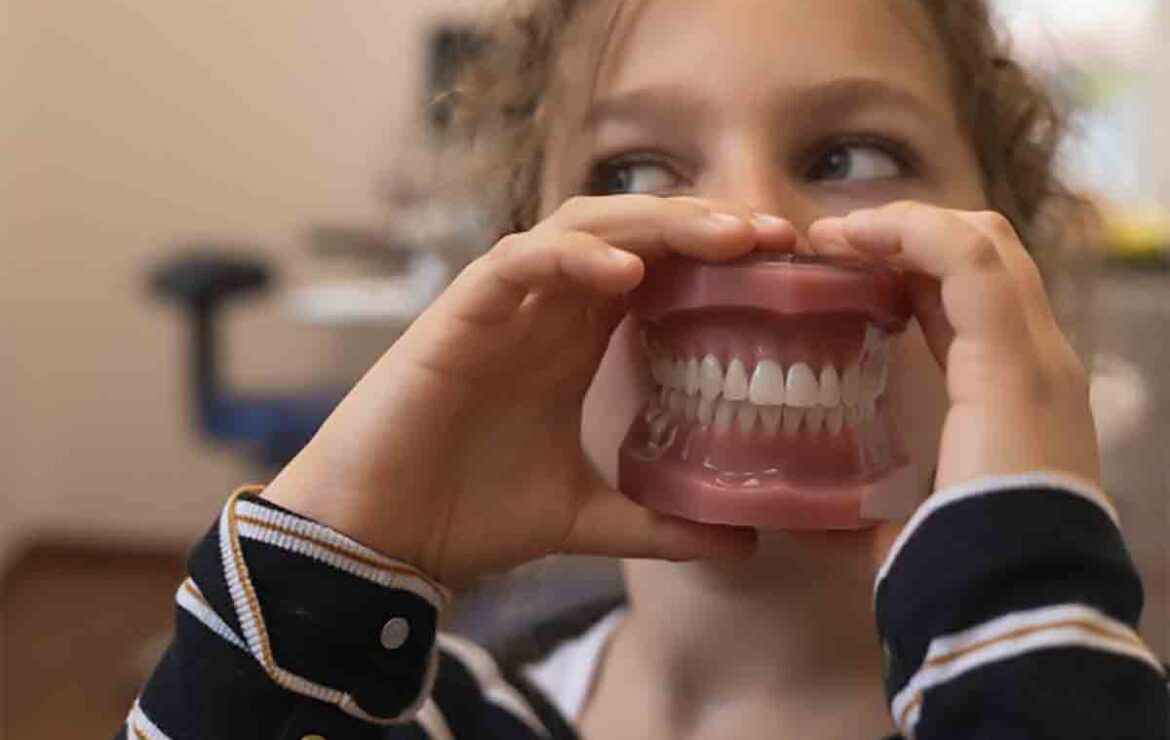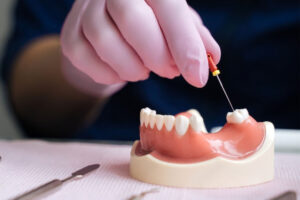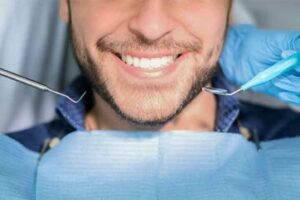Signs of Abnormal Biting

Signs of Abnormal Biting
Signs of Abnormal Biting
What are some of the signs of abnormal biting?
- Asymmetrical or canted teeth
- Grinding or clenching of teeth
- Jaw pain
- Bony exostoses
- Abfraction
- Teeth abrasion
Do you find it challenging to chew food comfortably or experience pain while biting or chewing? Have you noticed any asymmetry in your face or a misalignment in your jaw? These could be signs of abnormal biting, also known as malocclusion.
While malocclusion is more commonly observed in children, it can affect individuals of all ages. Interestingly, as we grow older, the prevalence of malocclusion tends to increase. This highlights the importance of addressing and seeking treatment for abnormal biting patterns, regardless of age.
In this article, we will explore five potential causes of abnormal biting and shed light on how they can be addressed.
Asymmetrical or Canted Teeth
You may notice that your smile looks lopsided or tilted when your teeth are not aligned correctly. One of the prominent signs of abnormal biting is when your upper and lower teeth do not align properly when you bite down or close your mouth. This misalignment can result in an uneven appearance and affect both the functionality and aesthetics of your teeth.
When your teeth are not aligned properly, it can impact your bite force distribution, causing certain teeth to bear more pressure than others.
But you don’t have to be worried for long or be conscious of your smile because dental professionals can thoroughly examine your bite and dental alignment to identify the underlying cause of the misalignment. The dentist may use various diagnostic tools such as X-rays, digital scans, physical models, pictures, and bite analysis to assess the situation accurately.
Grinding or Clenching of Teeth

Have you ever woken up in the morning with a sore jaw or throbbing headaches that seem to appear out of nowhere? If so, you may be familiar with the nighttime woes of teeth grinding, also known as bruxism. This common condition affects a significant number of individuals and typically occurs during sleep. But what causes this relentless grinding or clenching of teeth?
Stress and anxiety often play a leading role in bruxism, as the pressures of daily life can manifest in our sleep patterns. However, another culprit could be an abnormal bite, where the upper and lower teeth fail to fit together harmoniously. This misalignment can inadvertently trigger the grinding motion as the body attempts to find a more comfortable resting position for the jaw.
To address bruxism effectively, it’s crucial to seek professional dental care. Your dentist can perform a comprehensive examination to determine if you are indeed suffering from bruxism. During this evaluation, they will assess your bite and examine any signs of wear on your teeth. Armed with this information, they can develop a tailored treatment plan to alleviate your symptoms and protect your dental health.
Jaw Pain
You wake up in the morning, ready to take on the day, but as soon as you try to open your mouth to speak or enjoy your breakfast, you’re greeted by a sharp, uncomfortable pain in your jaw or swollen gums. Perhaps you’ve noticed clicking or popping sounds when you chew, or you struggle to fully open or close your mouth.
These could be signs of a temporomandibular joint (TMJ) disorder, a condition that affects the joint connecting your jawbone to your skull. This remarkable joint allows for smooth movements of the jaw, enabling essential functions such as chewing and speaking. However, when the TMJ becomes dysfunctional, it can lead to a range of discomforting symptoms that can significantly impact your daily life.
Treatment for TMJ disorders often begins with conservative measures. Lifestyle modifications such as eating softer foods, practicing stress-reducing techniques, and avoiding excessive jaw movements can provide relief.
Addressing such conditions often requires a multidisciplinary approach, involving oral surgeons, orthodontists, and speech therapists. The dental clinic can coordinate with specialists to develop a comprehensive treatment plan tailored to your specific needs, ensuring the best possible outcomes.
Bony Exostoses
If you notice any unusual bumps or growths on your jawline or “bony exostoses”, this may also be a sign that you have abnormal biting. These growths are often a response to excessive pressure or trauma to the area. While their exact cause is not always clear, they can develop as a result of chronic irritation or the body’s attempt to protect itself from ongoing pressure or trauma.
The appropriate treatment measures for bony exostoses depend on various factors, including the size, location, and symptoms associated with the growth. In some cases, if the bony exostosis is small and not causing significant issues, no intervention may be necessary. However, if the growth is causing discomfort or affecting the alignment of your teeth, treatment options can be explored.
The dentist may recommend a surgical procedure to remove the bony exostosis if it is causing functional problems or interfering with proper oral hygiene practices. This procedure is typically performed by an oral surgeon and involves the careful removal of the excess bone.
Abfraction
One of the distinguishing characteristics of abfraction is the appearance of V-shaped notches near the gum line of the affected teeth. These notches can vary in size and severity, depending on the extent of the enamel loss.
When abfraction is seen on a certain tooth or teeth, it is usually caused by high pressure on the area causing the tooth to flex and creating those v-shaped notches on the thin part of the tooth. This clinical sign is one of the obvious abnormal biting that should be addressed properly
Regular dental check-ups play a crucial role in identifying abfraction early on. During routine examinations, a dentist can visually inspect the teeth and gums, looking for any signs of enamel loss and notches. They may also use dental instruments to feel for irregularities along the gum line and evaluate the severity of the condition.
Teeth Abrasion
Excessive external forces can lead to the wearing away of tooth enamel, resulting in a condition known as teeth abrasion. This dental issue can arise from various factors, including improper brushing techniques, the use of a hard-bristled toothbrush, and habits like teeth grinding or clenching.
Furthermore, abnormal biting patterns can also contribute to teeth abrasion by exerting excessive pressure on specific teeth. Over time, these forces can cause detrimental effects such as tooth sensitivity, enamel erosion, and even tooth fractures. To ensure the protection of your dental health, it is important to consult with your dentist who can evaluate the extent of tooth abrasion and recommend suitable treatment options.
Key Takeaway
If you notice any signs of abnormal biting, it’s important not to ignore them, as they can lead to dental issues and discomfort. Remember, a dental clinic is a friendly and supportive environment dedicated to improving your oral health and enhancing your smile. They will ensure that you feel comfortable and at ease throughout the process, making your visit to the dental clinic a positive experience.
Curious about the smile makeover cost in the Philippines? Don’t worry, we’ve got you covered. Contact us today to schedule a consultation and get a personalized quote for restoration of your smile. Our friendly staff will guide you through the process, answer all your questions, and provide transparent pricing options tailored to your unique needs.











